Hungarian high-altitude balloon conquered the stratosphere − PHOTOS

Last year, the Astronomical Society of Bakony commemorated the 50th anniversary of the Moon landing by releasing a high-altitude balloon in Ajka. The successful and adventurous project continued this year with more professional equipment and several supporters. The “Űrbatyu II.” (“Space Bundle”) started its 3-hour journey from the park of the Thury castle in Várpalota on August 20. The balloon reached the height of 30 640 metres and landed in Tolna County on the outskirts of the village of Dúzs.
The series of experiments conducted by the Astronomical Society of Bakony has grown into an event of national significance, and the hundreds of people visited Várpalota to witness the release of the high-altitude balloon. The event was also broadcasted live on social media, sharing the success of “Űrbatyu II.” with tens of thousands of people, Origo reported.
In 2020, the Astronomical Society of Bakony chose August 20 as the date for launching their second balloon to commemorate the founding of the state of Hungary.
Sztratosz Feri, the smallest astronaut
The main goal of the “Űrbatyu II.” project was to optimise the equipment and to achieve a new altitude record (the first balloon reached the height of 26 532 metres). The team used a lighter payload box to decrease the overall (last year the payload box weighed 2.3 kg). The special high-altitude balloon, on the other hand, was larger than last year. The “technological package” included two GoPro Hero7, an Ozmo and an Insta360 ONE R camera, providing a 360-degree panoramic viewing angle, and other tools that measured altitude and temperature.
The mission also had a “space traveller”, Sztratosz Feri, the Lego figure (the name is a Hungarian pun on the word stratosphere), who turned the release of the balloon into a kind of “human mission”.
Stepping into the hallway of outer space
How high can “Űrbatyu II.” “fly up”? According to the prognostic data, a high-altitude balloon is able to cross the lowest layer of Earth’s atmosphere, the troposphere up to an altitude of 12-18 kilometres and it also can enter the layer of meteorological balloons, which means a height of 50 kilometres in the stratosphere. The actual boundary of outer space is already in the so-called thermosphere, directly above the mesosphere. Broadly, most experts agree that space starts at the point where orbital dynamic forces become more important than aerodynamic forces, or where the atmosphere alone is not enough to support a flying vessel at suborbital speeds. Still, it is rather difficult to connect it to a precise altitude.
In the 1900s, Hungarian physicist Theodore von Kármán attempted to determine the boundary between Earth’s atmosphere and outer space. He argued that it is approximately at the height of 50 miles or roughly 80 kilometres above sea level.
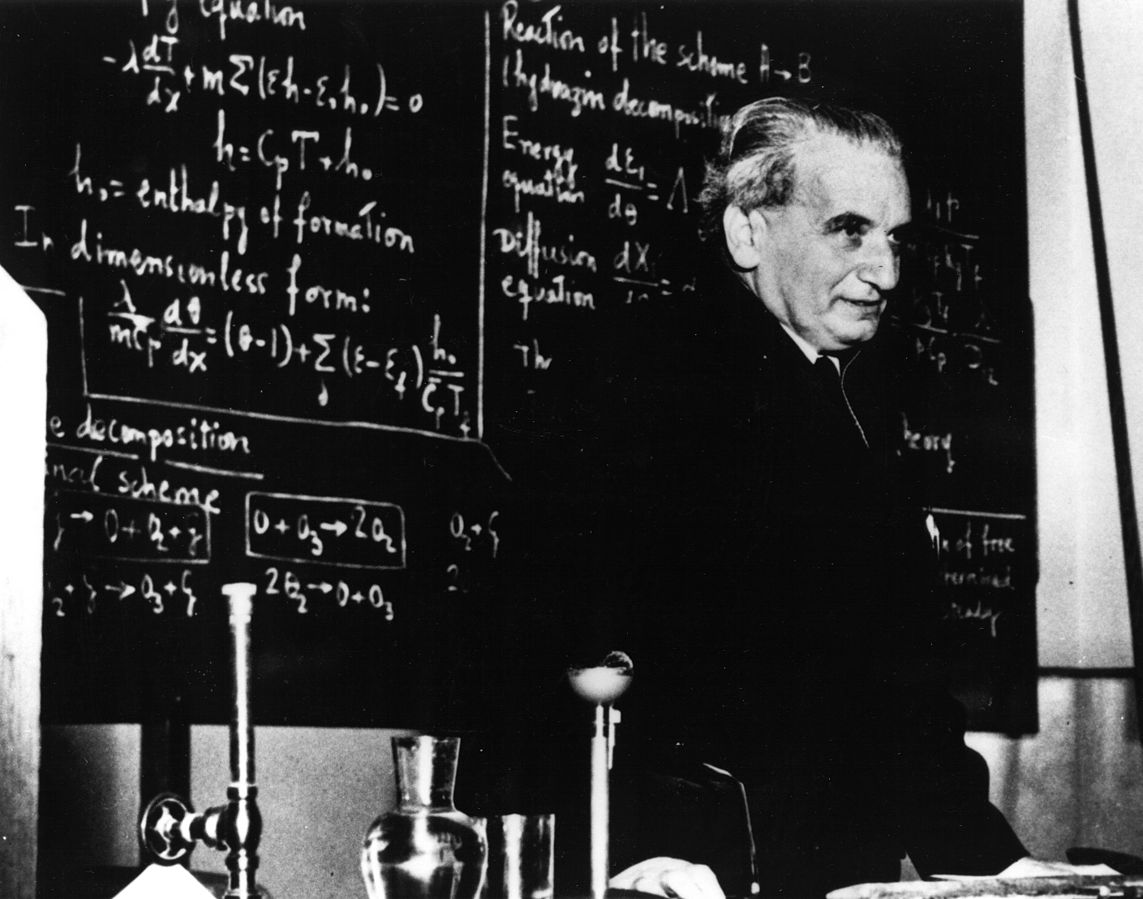
Photo: Wikimedia Commons by NACA
Today, the National Oceanic and Atmospheric Administration defines the Kármán Line “an imaginary boundary 100 kilometres (62 miles) above mean sea level”. Although the balloon could not reach this height, it managed to “scratch” the boundary of outer space.
The teamwork behind the project
The constructors and organisers of the “Űrbatyu II.” project already started the preparations early in the morning under the leadership of Ferenc Ivanics, head of the Astronomical Society of Bakony, and his wife, Klaudia Ivanics-Rieger. Meanwhile, more and more people gathered at the park of the Thury castle, and by 09:00 a.m., the crowd had swelled to nearly 400 people. The castle provided a special historical atmosphere for the events that followed each other in a seriously choreographed order.
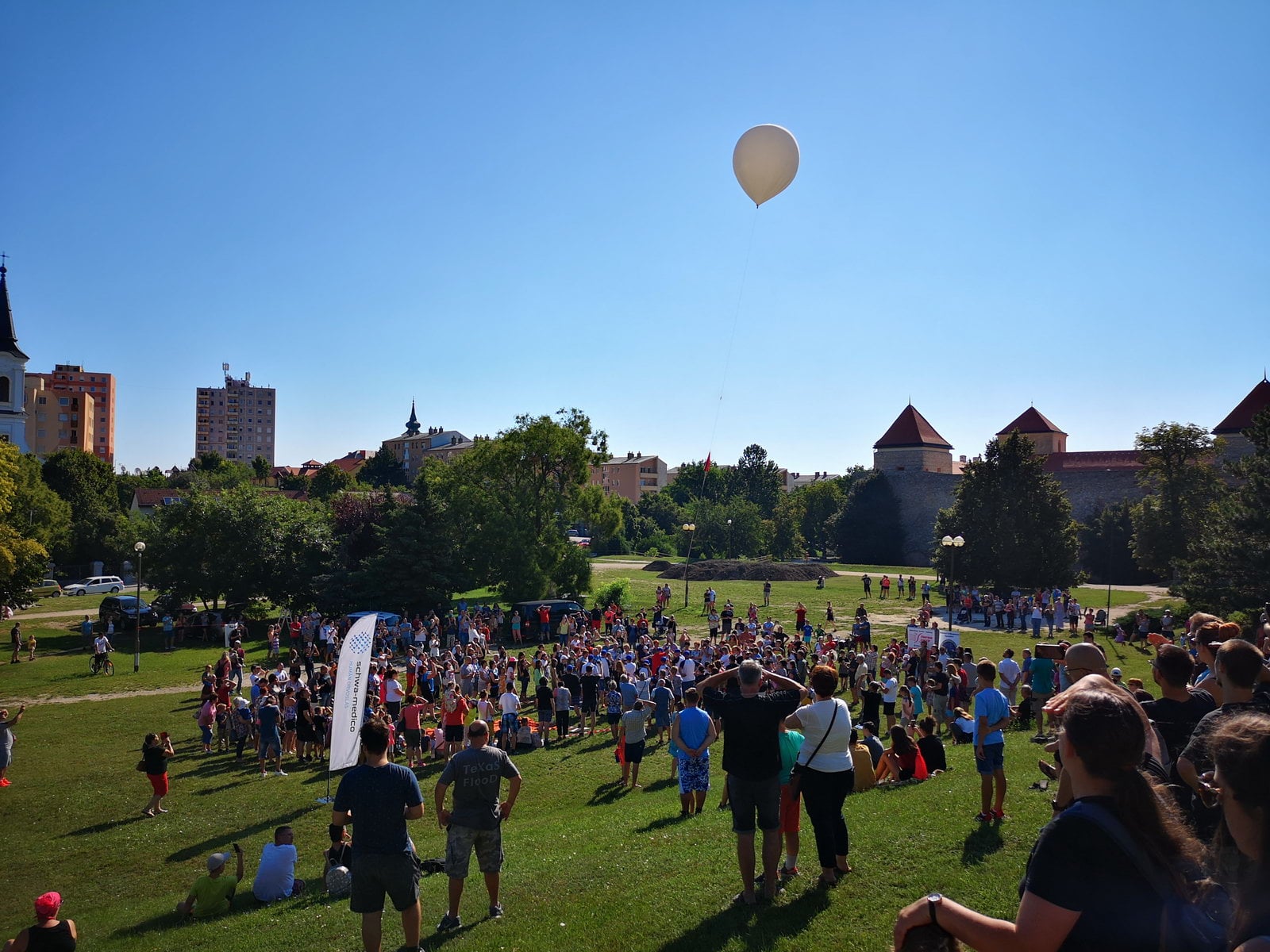
After the balloon started its journey into the stratosphere, the search expedition began to monitor the location of the balloon with the help of a software that examined all possible parameters.
The “Űrbatyu II.” managed to surpass the achievement of its predecessor and reached the height of 30 640 metres, where the Earth’s thin atmosphere becomes visible, along with the darkness of space behind.
Here are some breath-taking aerial photos taken by the balloon’s cameras:
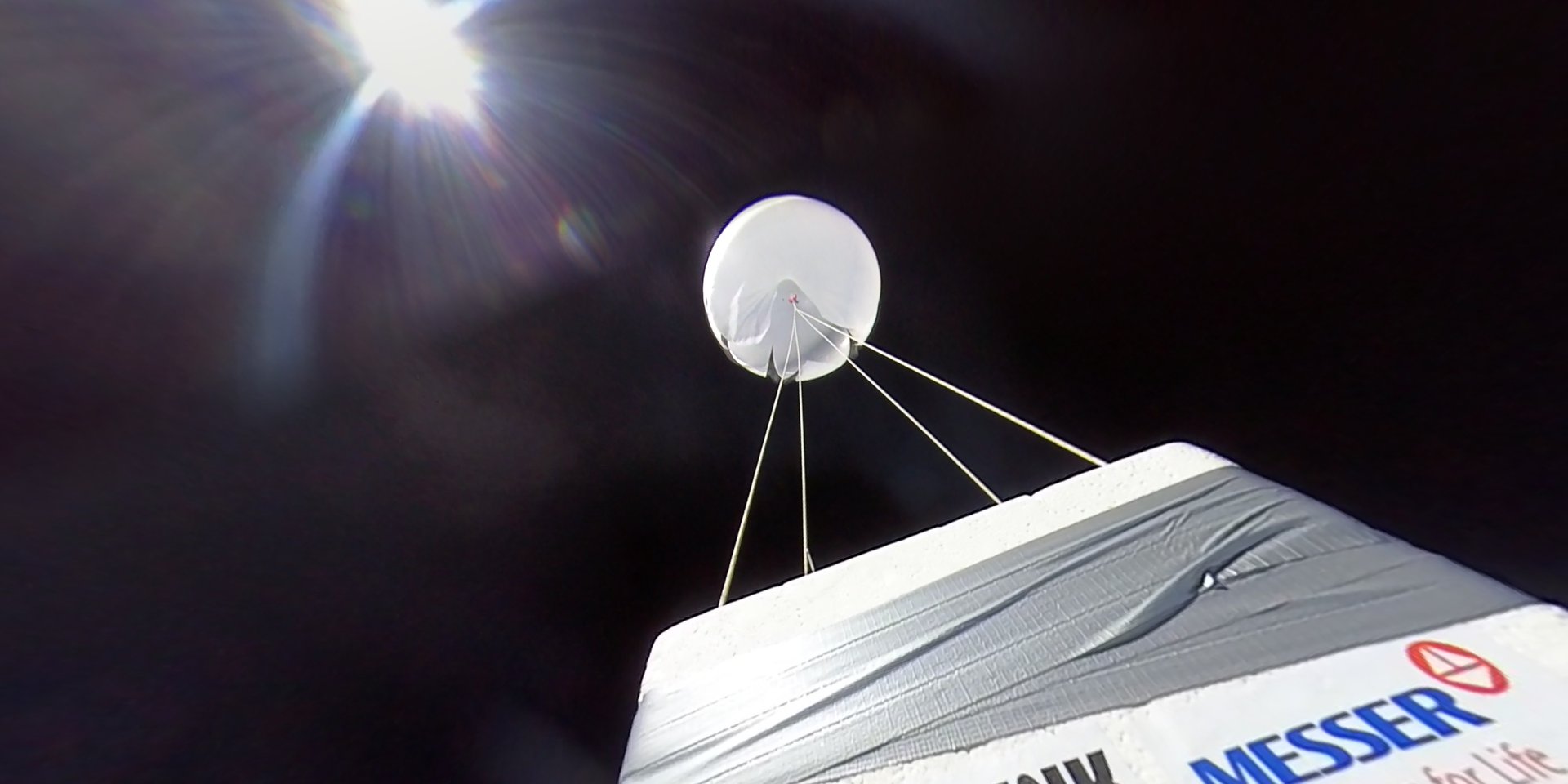
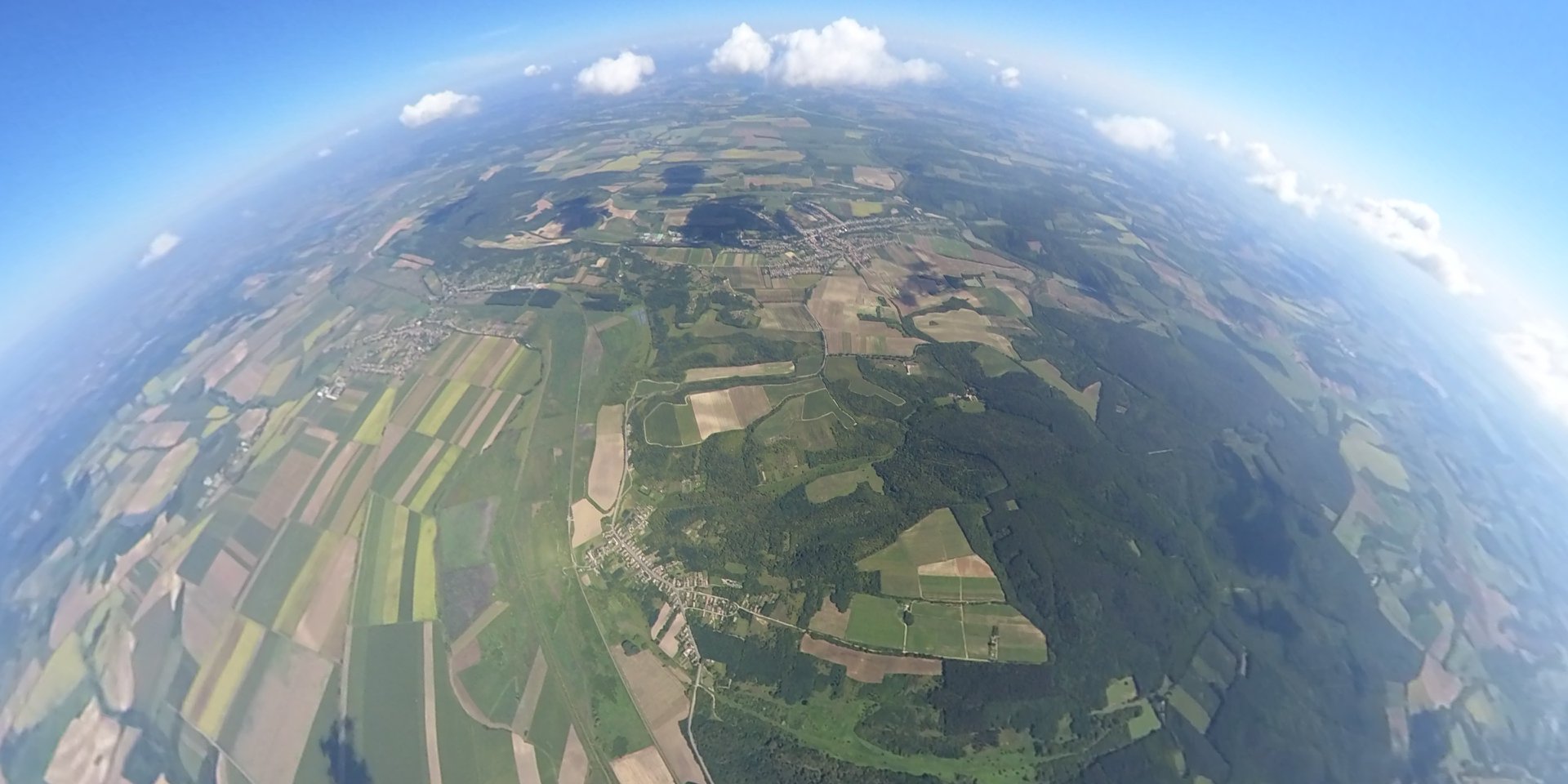
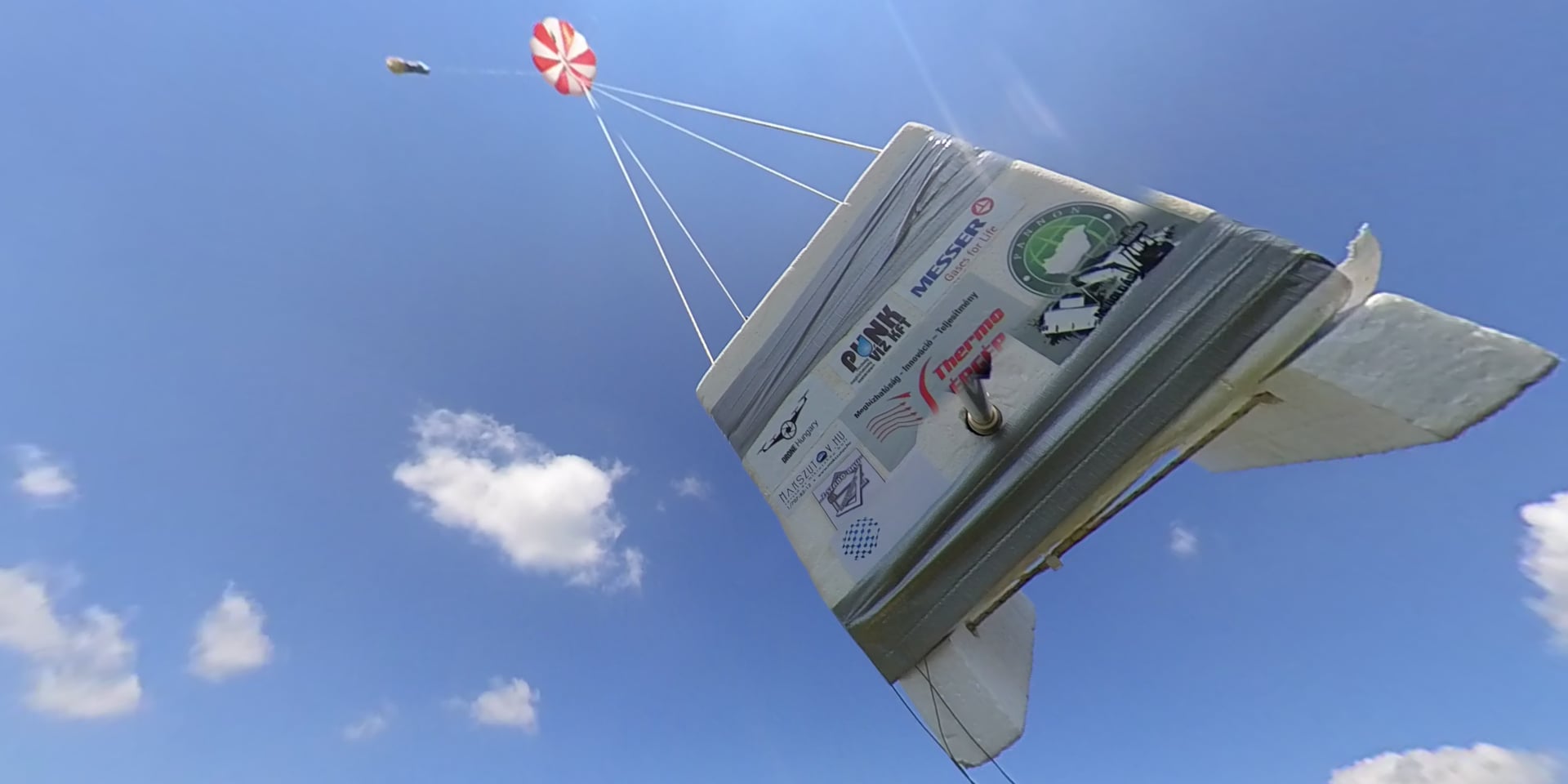
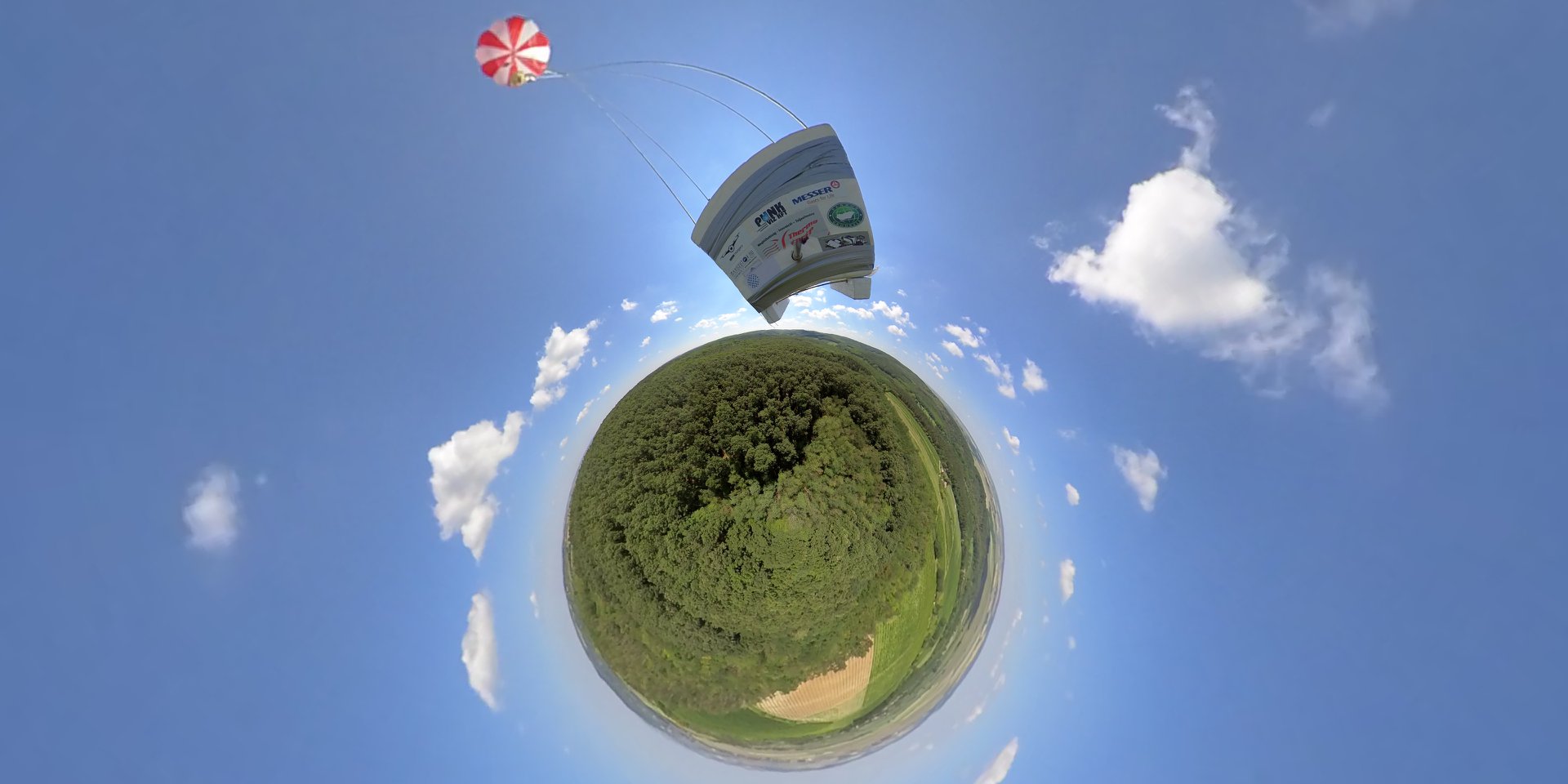
Featured image: www.facebook.com/bakonyicsillagaszatiegyesulet
Source: origo.hu







